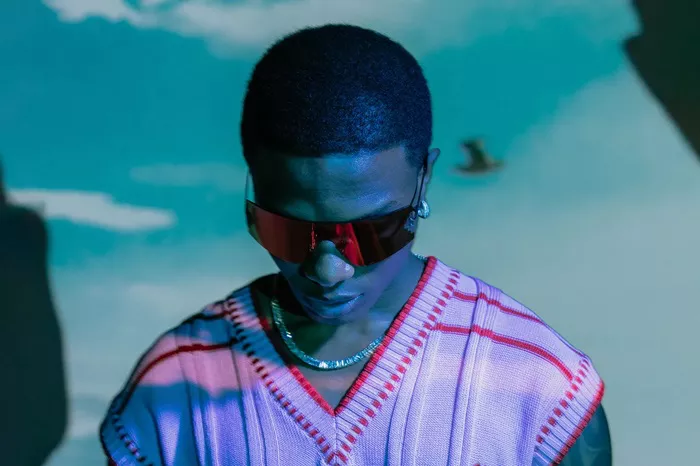In the vibrant tapestry of contemporary music, Afro Rap stands as a compelling fusion of African rhythms and Hip-Hop beats, weaving together cultural narratives, rhythmic diversity, and lyrical prowess. This article delves deep into the essence of Afro Rap, exploring its roots, evolution, notable artists, defining characteristics, and its impact on the global music scene.
Exploring the Roots of Afro Rap
Afro Rap finds its origins at the intersection of African musical heritage and the rhythmic cadence of Hip-Hop. Africa, with its rich tapestry of traditional music, rhythms, and storytelling traditions, has always been a fertile ground for musical innovation. From the infectious beats of Highlife and Afrobeat to the rhythmic complexity of Afro-Caribbean music, African music has continuously influenced global musical trends.
Hip-Hop, born in the Bronx during the 1970s, brought a new form of musical expression characterized by its urban narratives, DJ scratching, breakbeats, and lyrical dexterity. As Hip-Hop evolved and spread its influence worldwide, it encountered diverse musical traditions, including those from Africa.
The Evolution of Afro Rap
The evolution of Afro Rap can be traced through its journey across continents, blending African sounds with Hip-Hop’s rhythmic framework. In the early stages, artists like Fela Kuti and Tony Allen infused Afrobeat rhythms into their music, laying the foundation for what would later become Afro Rap.
In the 1990s and early 2000s, artists like Wyclef Jean, Fugees, and Nas incorporated African elements into their music, introducing a broader audience to the fusion of African and Hip-Hop sounds. This era witnessed collaborations between African artists and American rappers, leading to the birth of iconic tracks that merged African languages, melodies, and rhythms with Hip-Hop beats.
Defining Characteristics of Afro Rap
Afro Rap is characterized by its distinct fusion of African musical elements and Hip-Hop aesthetics. Key features include:
Rhythmic Diversity: Afro Rap embraces a wide range of rhythmic patterns, drawing from traditional African drumming, percussion, and polyrhythms. These rhythms create a dynamic and energetic groove that distinguishes Afro Rap from other subgenres of Hip-Hop.
Cultural Storytelling: Lyrics in Afro Rap often delve into themes of African heritage, identity, social issues, and cultural pride. Artists use their music as a platform to celebrate their roots, address societal challenges, and showcase the diversity of African cultures.
Instrumentation: Traditional African instruments such as djembes, talking drums, kora, and kalimba are often integrated into Afro Rap productions, adding a distinct sonic texture and authenticity to the music.
Language Fusion: Afro Rap seamlessly blends African languages, dialects, and slang with English or other languages commonly used in Hip-Hop, creating a multilingual and multicultural lyrical landscape.
Collaborations: Collaborations between African artists, diaspora communities, and international Hip-Hop acts are a hallmark of Afro Rap, fostering cross-cultural exchange and artistic innovation.
Notable Artists and Influences
Several artists have been instrumental in shaping the sound and style of Afro Rap:
Nigerian Influence: Artists like Fela Kuti, Burna Boy, Wizkid, and Davido have infused Afrobeat rhythms and Nigerian musical traditions into the Hip-Hop landscape, paving the way for Afro Rap’s rise.
South African Vibes: The South African music scene, with acts like Die Antwoord, Kwesta, and Cassper Nyovest, has contributed unique sounds and lyrical narratives to Afro Rap, blending local genres like Kwaito and Gqom with Hip-Hop elements.
West African Fusion: Ghanaian artists such as Sarkodie, Stonebwoy, and Kwesi Arthur have brought a blend of Highlife, Hiplife, and Afrobeat influences to Afro Rap, showcasing the diversity of West African musical styles.
East African Flavors: From Tanzania’s Diamond Platnumz to Kenya’s Sauti Sol, East African artists infuse Bongo Flava, Afro-pop, and traditional rhythms into Afro Rap, adding a vibrant and eclectic dimension to the genre.
Global Collaborations: International collaborations between Afro Rap artists and global Hip-Hop icons like Drake, Kanye West, and Kendrick Lamar have expanded the genre’s reach and influence, bridging continents and cultures through music.
The Impact of Afro Rap on the Global Music Scene
Afro Rap’s impact extends far beyond musical boundaries, shaping cultural narratives, fostering cross-cultural dialogue, and amplifying African voices on the global stage. Some key impacts include:
Cultural Exchange: Afro Rap serves as a bridge between continents, fostering cultural exchange and collaboration among artists from diverse backgrounds.
Global Recognition: The success of Afro Rap artists on international charts and stages has brought mainstream attention to African music, elevating its status and influence globally.
Empowerment and Representation: Afro Rap celebrates African heritage, stories, and languages, empowering artists to share their experiences and perspectives with a global audience.
Innovation and Fusion: The fusion of African rhythms with Hip-Hop innovation continues to inspire new generations of artists, pushing the boundaries of musical creativity and expression.
Unity and Diversity: Afro Rap’s ability to unite diverse musical traditions, languages, and cultures reflects the unity in diversity ethos, promoting understanding and appreciation across borders.
Conclusion
In conclusion, Afro Rap stands as a vibrant testament to the fusion of cultures, musical innovation, and artistic expression. Its rhythmic diversity, cultural storytelling, and global impact highlight the power of music to transcend boundaries and unite communities. As Afro Rap continues to evolve and inspire, it reaffirms the enduring legacy of African music on the global music scene.

